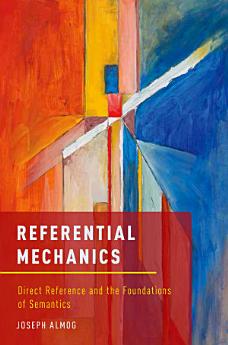Referential Mechanics: Direct Reference and the Foundations of Semantics
Feb 2014 · Oxford University Press
2.0star
3 reviewsreport
Ebook
192
Pages
family_home
Eligible
info
reportRatings and reviews aren’t verified Learn More
About this ebook
This volume is focused on understanding a key idea in modern semantics-direct reference-and its integration into a general semantics for natural language. In the first three chapters, foundational analyses from three philosophers -Saul Kripke, David Kaplan and Keith Donnellan-are dissected in detail. The differences between their respective ideas lead to varying consequences in the philosophy of mind, the metaphysics of necessity, and the epistemological idea of a priori knowledge. In the last chapter, two central puzzles said to threaten direct reference are raised. One is Frege's puzzle about judgments of cognitive significance and informativeness. This puzzle is analyzed and is shown to be the opposite of a threat; informative identities are, in effect, a consequence of the new cognitive insights behind direct reference. The second puzzle, the Partee-Kaplan, is a threat: how to unify the referential semantics of nouns with the seemingly non referential semantics of denoting phrases? The volume criticizes the concept of a unifying methodology-assimilating the referential nouns to the complex denoting phrases by way of (set theoretic) "ontological sublimation"--as proposed by Montague--and launches an orthogonal unification methodology generalizing direct reference to the common nouns anchoring the denoting phrases.
Ratings and reviews
2.0
3 reviews
Suki Miyagi
- Flag inappropriate
February 29, 2020
oh no. this is much too slow and circuitous to be given more than a single star. all the knowledge embodied herein is very context-specific, no linkage to anything external, making it a giant lump of bio-non-available sludge-data that, for it's worth, can get gotten better and faster elsewhere.
1 person found this review helpful
pasqualina wong
- Flag inappropriate
March 5, 2020
depressing, long. was looking for clarification, got a lot of sludge. the author is not dumb, but his book is weighed down by a totally unjustified (and unseemly) reverence that he has for his immediate supervisors, which throws the whole thing out of focus. is this about his department or about philosophy? this is somebody who has something but is making it for the reader to find it.
About the author
Joseph Almog is the author of Everything in Its Right Place (forthcoming), Cogito: Descartes and Thinking the World (2008), What Am I? Descartes and the Mind-Body Problem (2001) and co-editor of Essays on Reference, Language, and Mind (2012), Having in Mind: The Philosophy of Keith Donnellan (2012), and The Philosophy of David Kaplan (2009) -- all from Oxford University Press.
Rate this ebook
Tell us what you think.
Reading information
Smartphones and tablets
Install the Google Play Books app for Android and iPad/iPhone. It syncs automatically with your account and allows you to read online or offline wherever you are.
Laptops and computers
You can listen to audiobooks purchased on Google Play using your computer's web browser.
eReaders and other devices
To read on e-ink devices like Kobo eReaders, you'll need to download a file and transfer it to your device. Follow the detailed Help Center instructions to transfer the files to supported eReaders.






